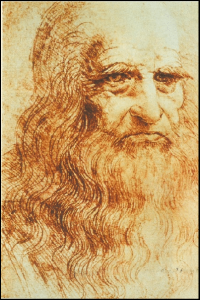
Early Life and Background
William Shakespeare was born in Stratford-upon-Avon, England, on April 23, 1564, to John Shakespeare, a glove maker and prominent public figure, and Mary Arden, a daughter of a wealthy farmer. He was the third of eight children, and his family was moderately well-off, though his father’s fortunes fluctuated.
Shakespeare’s exact date of birth is not known, but he was baptized on April 26, 1564, which is why his birthdate is often celebrated on April 23rd, also the day of his death. He was likely educated at the local grammar school, King’s New School in Stratford, where he would have received a solid education in Latin, classical literature, and rhetoric—skills that would later serve him well in his writing.
At the age of 18, Shakespeare married Anne Hathaway, an older woman, in 1582. They had three children: Susanna (born 1583) and twins Hamnet and Judith (born 1585). Little is known about Shakespeare’s life during the early years of his marriage, and this period is often referred to as his “lost years.”
The London Years and Rise to Fame
Shakespeare’s move to London, sometime in the late 1580s, marked the beginning of his career as a playwright and actor. By 1592, he had gained enough recognition for his plays that he was mentioned in a pamphlet by fellow playwright Robert Greene, who referred to him as an up-and-coming dramatist. Shakespeare’s early plays, such as Henry VI and Titus Andronicus, showcased his potential as a writer of both history plays and tragedies, though he quickly expanded his range to include comedies, histories, and later, profound tragedies.
He was associated with the Lord Chamberlain’s Men, a popular acting troupe, which later became the King’s Men under King James I after 1603. This company performed Shakespeare’s works at The Globe Theatre, and his involvement with this troupe helped solidify his place in English theatrical history.
Shakespeare’s Plays and Poetry
Shakespeare is renowned for writing 39 plays, including comedies, tragedies, and histories. His works have had a profound influence on literature and the English language. Below are key details about his major works:
Comedies:
A Midsummer Night’s Dream (1595): A magical tale blending romance, comedy, and fantasy, full of mistaken identities, love triangles, and fairy magic.
Twelfth Night (1601): A story of disguise, love, and mistaken identities, which explores themes of gender and love in a humorous and complex way.
As You Like It (1599): Known for its themes of love, exile, and self-discovery, this play features the famous “All the world’s a stage” speech.
The Merchant of Venice (1596–1599): A controversial comedy that explores themes of justice, mercy, and revenge, particularly through the character of Shylock, a Jewish moneylender.
Tragedies:
Hamlet (1600–1601): One of the greatest tragedies ever written, Hamlet explores themes of revenge, madness, mortality, and existential questioning. It is one of Shakespeare’s most famous and performed works.
Macbeth (1606): A dark exploration of ambition, guilt, and power, Macbeth tells the story of a Scottish nobleman who, driven by prophecy and his wife’s encouragement, commits murder to become king, with devastating consequences.
King Lear (1605–1606): A tragic exploration of aging, family dynamics, and the destructive nature of pride and greed, King Lear is one of Shakespeare’s most intense and heart-wrenching tragedies.
Othello (1603–1604): A tragedy about jealousy, manipulation, and racial prejudice, Othello examines the destructive power of insecurity and mistrust.
Histories:
Richard III (1592–1593): A historical play that focuses on the rise to power and eventual downfall of the ruthless King Richard III.
Henry IV, Parts 1 and 2 (1596–1598): These plays portray the reign of King Henry IV and his relationship with his son, Prince Hal, whose transformation into King Henry V is chronicled in the next play.
Henry V (1599): A nationalistic play about King Henry V’s military campaigns, particularly the Battle of Agincourt, and the king’s development from a reckless youth to a determined monarch.
Sonnets:
Shakespeare’s 154 sonnets, first published in 1609, are a key part of his literary legacy. These sonnets cover themes of love, beauty, time, and mortality. The sonnets also explore the complex relationships between the poet and the “fair youth,” the “dark lady,” and the “rival poet.”
Shakespeare’s Influence on Language and Culture
Shakespeare’s contribution to the English language is profound. He is credited with coining or popularizing many words and phrases still in common use today, such as “break the ice,” “wild-goose chase,” “heart of gold,” and “a fool’s paradise.” His mastery of language and ability to capture the complexities of human nature has led to his works being translated into every major language and performed all over the world.
His works are notable not only for their language but also for their universal themes, which explore the full range of human experiences—love, jealousy, ambition, betrayal, and the quest for power. These themes have ensured that Shakespeare’s work remains relevant in modern times, with numerous adaptations in theatre, film, and literature.






